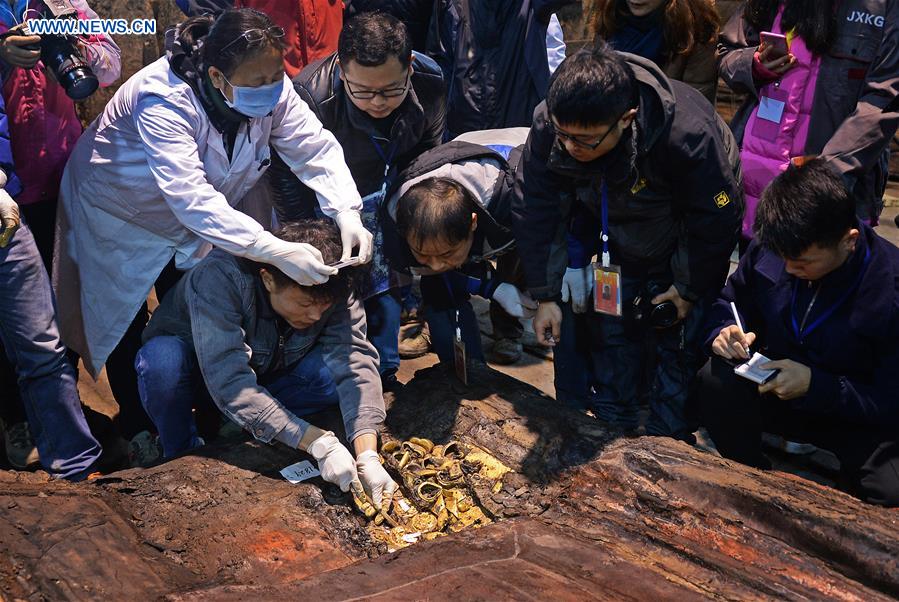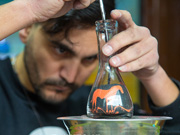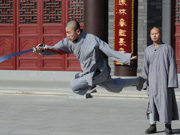


Archaeologists clear gold cakes unearthed from the main coffin in the Haihunhou (Marquis of Haihun) cemetery, east China's Jiangxi Province, Dec. 24, 2015. There were 96 gold cakes and several hoof-sahped golds newly unearthed between the inner and external coffin at the Haihunhou cemetery on Dec. 24, making the number of gold cakes unearthed here rise to 285, the most among all archaeological excavations of the Han Dynasty (206 B.C.-220 A.D.) tombs. (Xinhua file photo/Wan Xiang)
BEIJING, March 2 -- A jade seal found in the interior coffin of a 2,000-year-old tomb in east China's Jiangxi Province has helped identify its master as the Marquis of Haihun, who had a short-lived reign of 27 days as an emperor of Western Han Dynasty.
Xin Lixiang, head of the excavation expert panel of the Haihunhou Tomb, announced it at a press conference in the Beijing Capital Museum Wednesday.
The announcement also commenced a three-month show of more than 400 artifacts selected from over 10,000 items unearthed from the tomb during the 5-year-long excavation.
Xin, who is one of China's most authoritative archeologists for the Qin and Han dynasties, said the research team found a seal of white jade at the waist position of the human remains.
The printing base is inscribed with the seal characters of "Liu He", name of the Marquis of Haihun, who is also the grandson of Emperor Wu whose reign ushered in one of the most prosperous periods in China's history.
Day|Week

 Qiandaohu supply ship named 'model ship' by PLA Navy
Qiandaohu supply ship named 'model ship' by PLA Navy Stunning Kuche on the Silk Road
Stunning Kuche on the Silk Road Tunisian man creates art of sand in Hangzhou
Tunisian man creates art of sand in Hangzhou Goddess teacher shares fitness program online
Goddess teacher shares fitness program online Getting close to PLA's easternmost post on the mainland
Getting close to PLA's easternmost post on the mainland 'Naked run' race held in Beijing
'Naked run' race held in Beijing Train Attendant Recruitment Held in East China
Train Attendant Recruitment Held in East China In pics: Russia's Su-35 fighter jets
In pics: Russia's Su-35 fighter jets Young monks learn kungfu in NE China temple
Young monks learn kungfu in NE China temple Scenery of Guzhu, thousand-year-old ancient village in E China
Scenery of Guzhu, thousand-year-old ancient village in E China